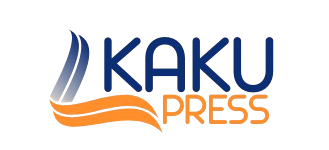Best Business License in Ethiopia 2025: Steps, Cost, and Requirements

Ethiopia has emerged as one of the fastest-growing economies in Africa, attracting both local entrepreneurs and international investors. As businesses continue to flourish, comprehending the legal framework is crucial, especially when it comes to obtaining a business license in Ethiopia. Whether you’re launching a small coffee shop in Addis Ababa or planning a large-scale industrial operation, securing the proper business license is a vital legal step for compliance and sustainability.
I will discuss the step-by-step procedure, required documents, associated fees, and all regulatory requirements that you must fulfill to obtain a business license in Ethiopia.
Types of Business Licenses in Ethiopia and Where to Obtain Them
The business license in Ethiopia varies depending on the type of activity, legal structure, and sector. Licenses are typically issued by either the federal government or regional trade bureaus, depending on the business location and scale.
| License Type | Issuing Authority | Examples of Applicable Businesses |
| Commercial License | Ministry of Trade and Regional Integration | Retail, Wholesale, Export/Import |
| Industrial License | Ministry of Industry or Regional Offices | Manufacturing, Processing Plants |
| Service License | Ministry of Innovation & Technology / Regions | IT, Hospitality, Consulting |
| Investment License | Ethiopian Investment Commission (EIC) | Foreign Direct Investment Projects |
| Professional License | Sector-Specific Ministries or Associations | Legal, Medical, Engineering Services |
| NGO/Non-Profit License | Agency for Civil Society Organizations | Charitable Development Organizations |
Step-by-Step Process to Obtain a Business License in Ethiopia
Securing a business license in Ethiopia is a crucial process that ensures compliance with national regulations while setting the foundation for a successful business operation. While the exact steps may vary slightly between federal and regional authorities, the general process remains consistent across the country. Whether you’re opening a small-scale operation or a larger enterprise, following these steps will guide you through the necessary legal framework and help you start your business smoothly.
Reserve Your Business Name
The first step in starting a business in Ethiopia is reserving a unique business name. You must visit the Ministry of Trade or your regional trade bureau to submit your desired name for approval. The name you select should be distinctive and should not resemble or conflict with an existing business entity in the same sector. This helps avoid confusion in the market and ensures your business identity stands out. The name reservation process usually takes a few days and, once approved, secures your business name for future registration.
Obtain a Tax Identification Number (TIN)
Before proceeding with your business registration, it’s Fundamental to obtain a Tax Identification Number (TIN) from the Ethiopian Revenue and Customs Authority (ERCA). The TIN is required for tax compliance and is critical for managing your business’s finances, such as invoicing, filing taxes, and accessing financial services. It’s a straightforward process that involves submitting your business Information to the ERCA, where they will issue the TIN. Having a TIN also ensures you are legally able to report and pay taxes according to Ethiopian law.
Business Registration
With your business name reserved and TIN in hand, you can proceed to register your business with the Documents Authentication and Registration Office (DARO). This step involves filing your business Information with the government, which may include the business’s structure (sole proprietorship, partnership, etc.), ownership information, and the specific activities your business will engage in. Upon approval, you will receive your Certificate of Incorporation, an official document that validates the existence of your business entity in Ethiopia.
Prepare Required Documents
Now that your business is registered, the next step is to gather all the necessary documents to apply for your business license. These documents include the Memorandum and Articles of Association (defining the internal regulations of your company), lease agreements for the premises where your business will operate, shareholder Information, and any investment license if your business involves foreign investment. It’s Fundamental to ensure all documents are up-to-date, authentic, and signed as required to avoid delays in the licensing process.
Apply for a Business License
Once you have prepared all the necessary documents, it’s time to submit your application for a business license. This involves visiting the relevant licensing authority, which will differ depending on your business’s nature (federal or regional). You will submit the completed application along with the required documents, which will be reviewed for compliance with local regulations. This step may take some time, as the authorities will assess the completeness and accuracy of your submission.
Pay the License Fee
The licensing process requires payment of a fee that is based on your business activity and location. The fee structure varies across different sectors, such as retail, manufacturing, or services, and it also differs between federal and regional offices. The fee is generally determined by factors such as the size of your business and its operational scale. Once you’ve paid the required license fee, you’ll be issued a receipt that serves as proof of payment, which is necessary to proceed to the final step.
Collect Your License
After your application is approved and all fees are paid, you can collect your official business license from the issuing office. This license grants you the legal right to operate your business within Ethiopia. You will need to display it prominently at your business location. With your business license in hand, you are now legally recognized by the Ethiopian government and can begin conducting business operations officially.
Documents Required for a Business License in Ethiopia
The required documentation for a business license in Ethiopia depends on the type of entity and activity. Foreign investors, for example, will need additional approvals and financial documents compared to local entrepreneurs.
| Document | Required For | Additional Notes |
| Valid Business Name Reservation | All businesses | Issued by trade bureaus |
| Tax Identification Number (TIN) | All businesses | Required for all financial transactions |
| Certificate of Incorporation | Companies and partnerships | Provided by DARO |
| Lease Agreement | Businesses operating from physical sites | Proof of office or retail space |
| Investment License | Foreign and large-scale businesses | Issued by the Ethiopian Investment Commission |
| Identification of Owners/Shareholders | All business types | Passport for foreigners; Kebele ID for locals |
| Sector-specific Certifications | Specialized industries | E.g., health, food processing, construction |
Legal Structures and Business Categories in Ethiopia
In Ethiopia, businesses are classified based on their ownership structure, size, and nature of activities. Comprehending the different legal structures available is Fundamental for any entrepreneur or investor looking to operate within the country. Each structure comes with its own set of advantages, obligations, and regulatory requirements, which can impact everything from liability to taxes and governance. Whether you’re a local startup or a foreign investor, choosing the right business structure is a critical step to ensure that your operations align with legal, financial, and strategic goals.
Sole Proprietorship
A Sole Proprietorship is the simplest form of business ownership, often chosen by individuals looking to start small businesses with minimal financial and administrative requirements. It’s ideal for businesses where the owner is the sole decision-maker, such as a local café or freelance consulting. Registering a sole proprietorship is straightforward, and there’s no need for complex paperwork. However, the Crucial disadvantage is that the owner has unlimited liability.
Private Limited Company (PLC)
The Private Limited Company (PLC) is the most common legal entity in Ethiopia. It’s suitable for medium-sized businesses, providing a balanced approach between operational flexibility and legal protection. A PLC requires at least two shareholders and offers limited liability protection, meaning that the personal assets of the owners are shielded from the company’s debts or legal issues. This structure is favored by local entrepreneurs and small investors due to its moderate regulatory demands and ability to attract investment.
Share Company (SC)
A Share Company (SC) is typically chosen by large-scale operations or companies seeking to raise significant capital. It requires a larger number of shareholders compared to a PLC and operates under more stringent compliance regulations. Share companies are subject to more complex governance structures, including the need for a board of directors, regular shareholder meetings, and stricter accounting practices.
Partnership on Business license in Ethiopia
A Partnership involves two or more individuals or entities coming together to run a business, share profits, and share legal responsibilities. It’s a popular choice for professional services, such as law firms, accounting firms, or joint ventures. The responsibilities and liabilities are typically shared among the partners, depending on the partnership agreement. There are several types of partnerships, including general partnerships, where partners have equal responsibility and liability, and limited partnerships, where some partners have limited liability based on their investment.
A Foreign Branch Office is an extension of a foreign company operating in Ethiopia. It’s typically used by international businesses looking to establish a presence in the country. A foreign branch office is allowed to operate within Ethiopia under the approval of the Ethiopian Investment Commission and must comply with local regulations. This structure is ideal for multinational companies that want to test the Ethiopian market without setting up a fully independent subsidiary.
Cost of Business License in Ethiopia by Sector
The cost of acquiring a business license in Ethiopia can vary based on the industry, region, and legal structure of your business. Below is a general cost breakdown by category.
| Business Type | License Fee (Approximate) | Annual Renewal Cost |
| Retail or Wholesale Trade | ETB 1,000 – ETB 5,000 | ETB 1,000 – ETB 2,500 |
| Manufacturing Industry | ETB 5,000 – ETB 10,000 | ETB 3,000 – ETB 5,000 |
| Hospitality (Hotels, Cafés) | ETB 3,000 – ETB 7,000 | ETB 2,000 – ETB 4,000 |
| Consultancy Services | ETB 2,000 – ETB 4,000 | ETB 1,000 – ETB 2,500 |
| IT or Tech Startups | ETB 1,500 – ETB 3,000 | ETB 1,000 – ETB 2,000 |
| Foreign Investment Firms | ETB 10,000 – ETB 20,000 | ETB 5,000 – ETB 8,000 |
Challenges Faced While Applying for a Business License in Ethiopia
Although the process of applying for a business license in Ethiopia is well-defined, entrepreneurs often encounter a series of challenges that can delay or hinder their application. Being aware of these challenges can help businesses plan better and navigate the licensing process more smoothly. From bureaucratic hurdles to issues related to documentation, Comprehension of potential roadblocks will empower you to avoid common pitfalls and streamline your business registration experience.
Bureaucratic Delays
One of the most common challenges faced by entrepreneurs in Ethiopia when applying for a business license is bureaucratic delays. Government offices involved in the licensing process often suffer from inefficiencies, such as understaffing, outdated systems, and long queues. In many cases, document verification can take longer than expected, and the instructions provided to applicants are often unclear or inconsistent. This results in delays that can frustrate business owners, especially those who are eager to start their operations.
Incomplete Documentation
Incomplete documentation is another significant challenge that many applicants face when applying for a business license in Ethiopia. The application process requires multiple documents, including business registration forms, tax identification numbers, shareholder agreements, and lease contracts. Missing or improperly filled-out documents, even if it’s just a single piece of required paperwork, can cause your entire application to be rejected or put on hold for weeks.
Regulatory Overlaps
Regulatory overlaps are a common issue in sectors that are governed by multiple government ministries or authorities. In Ethiopia, certain business activities may require clearance from different regulatory bodies, which complicates the licensing process. For example, businesses in the food, construction, or healthcare sectors might need approvals from both local and federal authorities, as well as specific sectoral bodies. The overlapping regulations can cause confusion and lead to delays as applicants wait for approval from multiple sources.
Regional Variances
Regional variances in Ethiopia can also create challenges when applying for a business license. Different regions of the country may have distinct regulations, processing times, and requirements for business licensing. While the central government provides general guidelines, local authorities in regions such as Addis Ababa, Oromia, or Amhara may implement slightly different procedures or have varied interpretations of the rules. As a result, businesses applying in different regions may experience discrepancies in the approval process, including longer processing times, additional document requirements, or inconsistent fees.
Language Barriers
Language barriers can also pose a significant challenge for foreign entrepreneurs seeking to establish a business in Ethiopia. Many official documents and government forms are written in Amharic, the national language. For non-Amharic speakers, this creates difficulties in comprehending the requirements, filling out forms accurately, and ensuring that all documentation is correctly submitted. The language barrier may also complicate communication with government officials and lead to misunderstandings, resulting in delays or incorrect submissions.
Renewing and Amending a Business License in Ethiopia
Once you’ve obtained your business license in Ethiopia, maintaining its validity is just as important as securing it. Renewal and amendment are critical processes to ensure your business operates legally and without interruption. Failing to manage these obligations can lead to fines, delays, or even license cancellation. Whether you’re continuing operations as usual or making structural changes to your business, staying compliant with licensing requirements should be a priority.
Renewal Process
In Ethiopia, business licenses are generally renewed on an annual basis. The renewal process is straightforward but requires the timely submission of several Crucial documents. These typically include:
- A completed license renewal application form
- Recent financial statements or audited reports
- Tax clearance from the Ethiopian Revenue and Customs Authority (ERCA)
Amendment Process
Amending a business license in Ethiopia is necessary when there are significant changes in your business. This includes:
- Change of business location or address
- Change in ownership or management structure
- Expansion or modification of business activities
- Updating business name or legal form
Penalties for Non-Renewal
Failing to renew your business license in Ethiopia within the designated period can lead to serious consequences. Common penalties include:
- Late renewal fines
- Suspension or revocation of the license
- Ineligibility to conduct any business activities
- Possible legal action from regulatory authorities
Wrapping Up
Getting a business license in Ethiopia may seem complex at first, but with the right information and preparation, the process becomes far more manageable. From submitting your application to meeting legal and financial requirements, each step is Fundamental for establishing a legally compliant and operational business. By following the correct procedures and comprehending your responsibilities, you can ensure a smooth entry into Ethiopia’s promising economic environment and focus your energy on growing your business with confidence.
FAQs
What are the basic documents needed to apply for a business license in Ethiopia?
To apply for a business license in Ethiopia, you’ll need a reserved business name, Tax Identification Number (TIN), Certificate of Incorporation (for companies), lease or ownership agreement of business premises, and copies of the owners or shareholders. Foreign investors also require investment licenses and financial declarations. Sector-specific licenses may be needed based on the industry. All documents must be authenticated by the appropriate government office.
How long does it take to get a business license in Ethiopia?
The processing time varies depending on the type of license, sector, and completeness of documentation. Generally, it takes 7 to 14 working days after submission, provided there are no errors or missing documents. In busy seasons or in regional offices with limited staff, it may take longer. Foreign-owned businesses might take up to a month due to additional verification. Following up regularly and maintaining communication with officials can help reduce delays. Using a local consultant also helps streamline the process.
Can foreigners obtain a business license in Ethiopia?
Foreigners can obtain a business license in Ethiopia, but they must first secure an investment license from the Ethiopian Investment Commission. They also need to present a minimum capital requirement currently set at USD 200,000 for most sectors. The business must operate in sectors open to foreign investment. Additional documents like passport copies, financial statements, and a project proposal are necessary.
Is it possible to operate an online or home-based business with a license in Ethiopia?
Ethiopia does allow online or home-based businesses to operate legally with a business license. The type of license will depend on the activity, e.g., service, consultancy, or e-commerce. Applicants must still meet standard requirements such as name registration, TIN, and office address. In case of home-based operations, proof of residence and landlord permission may be needed. While some regions are flexible, others require a commercial location. Make sure to verify local policies with your trade bureau.
What is the difference between a commercial license and a professional license in Ethiopia?
A commercial license in Ethiopia is issued for trading and merchandising businesses such as retail, wholesale, or import/export. In contrast, a professional license is granted for specialized services requiring specific qualifications like law, medicine, or engineering. Commercial licenses are usually issued by the Ministry of Trade, while professional licenses are approved by sector-specific authorities or professional associations.
Can I change my business activity after receiving the license?
You can change or expand your business activity after receiving your license, but you must file an amendment with the relevant authority. This includes submitting an application form, revised Articles of Association (if incorporated), updated business plans, and paying amendment fees. Some sectors may require additional approvals from regulatory agencies.
What happens if I operate without a business license in Ethiopia?
Operating without a valid business license in Ethiopia is illegal and can result in fines, business closure, and legal penalties. Authorities can seize goods, revoke permits, and prevent access to bank accounts or government contracts. It also damages your reputation among customers and financial institutions. Even for small or home-based businesses, licensing is mandatory.




